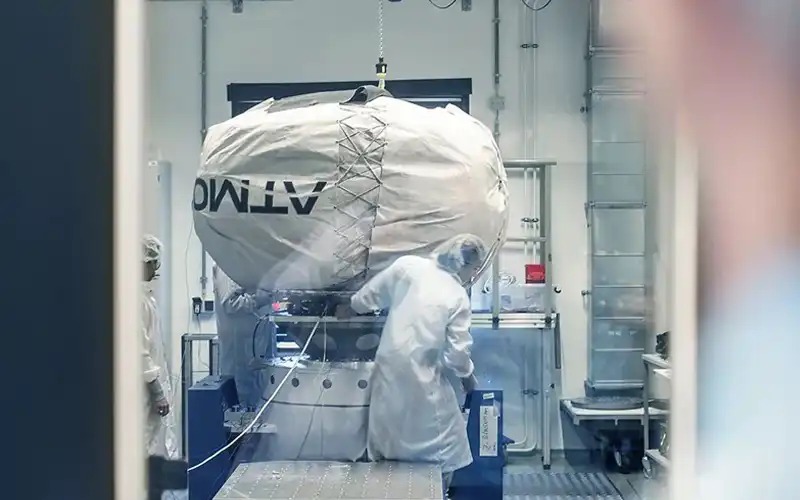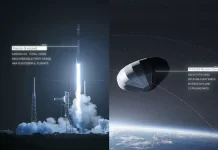
Germany’s ATMOS Space Cargo has been awarded €13.1 million in funding from the European Commission’s EIC Accelerator Programme. The company will use the funding to continue the development of its PHOENIX 2 capsule.
ATMOS is currently preparing for an initial test flight of its PHOENIX capsule, which is designed to host up to 100 kilograms of in-orbit experiments before returning them safely to Earth. The capsule relies on an inflatable heat shield to withstand the rigours of reentry. This initial test flight is expected to launch aboard a SpaceX Falcon 9 rocket no earlier than April 2025.
On 17 February, the company announced that it had secured €13.1 million in new funding from the EIC Accelerator Programme, comprising a non-refundable grant and an investment component. The company stated that the funding will be used to expand its engineering and testing capabilities and accelerate the development of its next-generation PHOENIX 2 capsule. In its official press release, ATMOS noted that as part of the award, it is required to complete “two PHOENIX 2 flights within a specified timeframe.”
The primary difference between PHOENIX 2 and the capsule that the company will use for April’s test mission is its propulsion system.
“The major update we plan for PHOENIX 2 is a propulsion system, which will allow us to choose the exact moment and thus the exact trajectory for reentry,” an ATMOS spokesperson told European Spaceflight. “[On] our first flight with PHOENIX 1, we are dependent on SpaceX’s Falcon 9 upper stage to perform a deorbit burn to put us onto the right reentry trajectory.”
In addition to the propulsion system, PHOENIX 2 will also feature a high-bandwidth communication system and a solar-based power system, allowing it to remain in orbit for months instead of hours. According to the company, the size, weight, and payload capacity of PHOENIX 2 will be very similar to those of PHOENIX 1. However, it added that more details on the specific configuration of PHOENIX 2 will be shared closer to its inaugural flight. ATMOS currently expects to complete the capsule’s first two flights in 2026.




